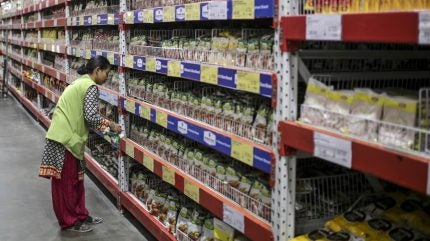
India’s food-safety watchdog is lining up regulatory changes that could mean a ban on the use of bisphenol A (BPA) and per and polyfluoroalkyl substances (PFAS) in food packaging.
The Food Safety and Standards Authority of India (FSSAI) has issued a draft amendment to packaging laws from 2018 to prohibit BPA and PFAS.

Discover B2B Marketing That Performs
Combine business intelligence and editorial excellence to reach engaged professionals across 36 leading media platforms.
The amendment states that “food contact materials manufactured with polycarbonate and epoxy resins shall be free from bisphenol A (BPA) and its derivatives”, an FSSAI notification read.
Under the proposal, PFAS, widely dubbed ‘forever chemicals’ would “not be used in manufacturing of food contact materials”, the FSSAI added.
The proposed changes would amend India’s Food Safety and Standards (Packaging) Regulations 2018.
The FSSAI issued the notification on 6 October. It is inviting comment for 60 days from that date.

US Tariffs are shifting - will you react or anticipate?
Don’t let policy changes catch you off guard. Stay proactive with real-time data and expert analysis.
By GlobalDataBPA and PFAS have been linked to health concerns such as hormonal disruption, reproductive disorders and a higher risk of cancer.
Last year, EU member states banned the use of BPA in food and drinks packaging. In 2023, the European Food Safety Authority concluded BPA had “potential harmful effects on the immune system”.
Last month, California’s legislature passed a bill to ban “forever chemicals” in food packaging and certain consumer goods but the plan was vetoed by the state’s governor.
California Governor Gavin Newsom described the bill as “well-intentioned” but said he was concerned about the impact on costs for consumers.
In July last year, a study in the US found large quantities of the PFAS ‘forever chemicals’ have been found in humans consuming white rice, eggs, red meat, seafood and coffee, according to a study.
Earlier this month, the UK’s Food Standards Agency launched a 12-week public consultation on a proposed ban on BPA and other bisphenols in materials that come into contact with food.





